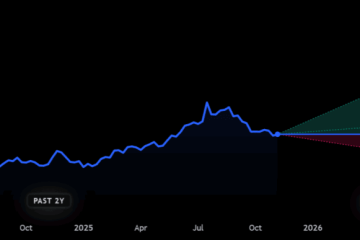The Importance and Impact of the FTSE 100 Index
Introduction to the FTSE 100
The FTSE 100 Index, also known as the Financial Times Stock Exchange 100 Index, is a crucial indicator of the UK’s economic health. Comprising the 100 largest companies listed on the London Stock Exchange by market capitalisation, the FTSE 100 serves as a benchmark for the overall performance of British equities. Given its influence on investment decisions and market sentiment, understanding the FTSE 100 is essential for investors and financial analysts alike.
Recent Performance and Key Events
As of October 2023, the FTSE 100 has shown resilience amid global market fluctuations. In the wake of ongoing challenges such as inflation, energy prices, and geopolitical tensions, the index has recorded noticeable gains, with a year-to-date increase of approximately 7%. Analysts attribute this performance to the strength of sectors like energy, consumer goods, and financial services. Major companies like Shell and Unilever have been instrumental in driving the index upwards thanks to high commodity prices and robust earnings reports.
Moreover, the Bank of England’s interest rate decisions have played a pivotal role in shaping market dynamics. The latest interest rate hike, aimed at curbing inflation, has led to mixed reactions among FTSE-listed companies. While some sectors face higher borrowing costs, companies in the banking sector have benefited from improved lending margins.
Significance for Investors
The FTSE 100 is often viewed as a barometer of the UK economy and significantly impacts investment strategies. For local and international investors, fluctuations in the index can signal opportunities or risks within the market. Additionally, pension funds and institutional investors closely monitor the FTSE 100 to guide their asset allocation and investment approaches.
Diversification is another reason why the FTSE 100 holds such significance. Investors often track the index to gauge performance across various sectors, thus informing diversification strategies that mitigate risk.
Conclusion and Future Outlook
Looking ahead, the FTSE 100’s relevance is expected to continue growing against the backdrop of economic uncertainties and inflationary pressures. Experts suggest a cautious but optimistic outlook, with factors such as government policies, corporate earnings, and global economic conditions playing critical roles in the index’s trajectory. Investors are advised to stay updated on these developments while leveraging the FTSE 100 as a tool for informed decision-making.
In summary, the FTSE 100 is more than just a stock index; it is a reflection of the overall market health and economic conditions in the UK, making it a vital component of the financial landscape.









